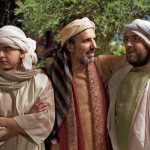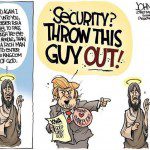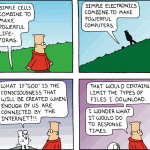My church building hosts not only the American congregation Crooked Creek Baptist Church (which is itself quite diverse in interesting ways), but also two other congregations, one Hispanic and one Congolese. There have been challenges related to the differing cultural assumptions of the various groups, and that has at times led to tensions. And so I thought it would be interesting to spend some time in my Sunday school class looking at culture as an aspect of Biblical interpretation. Last Sunday I started... Read more

















